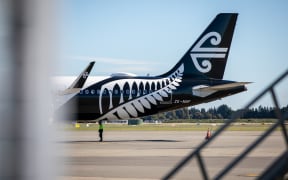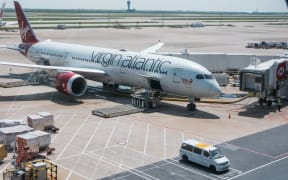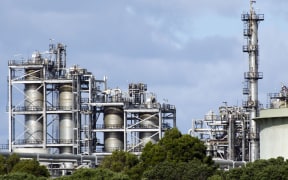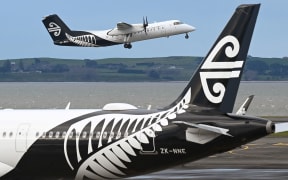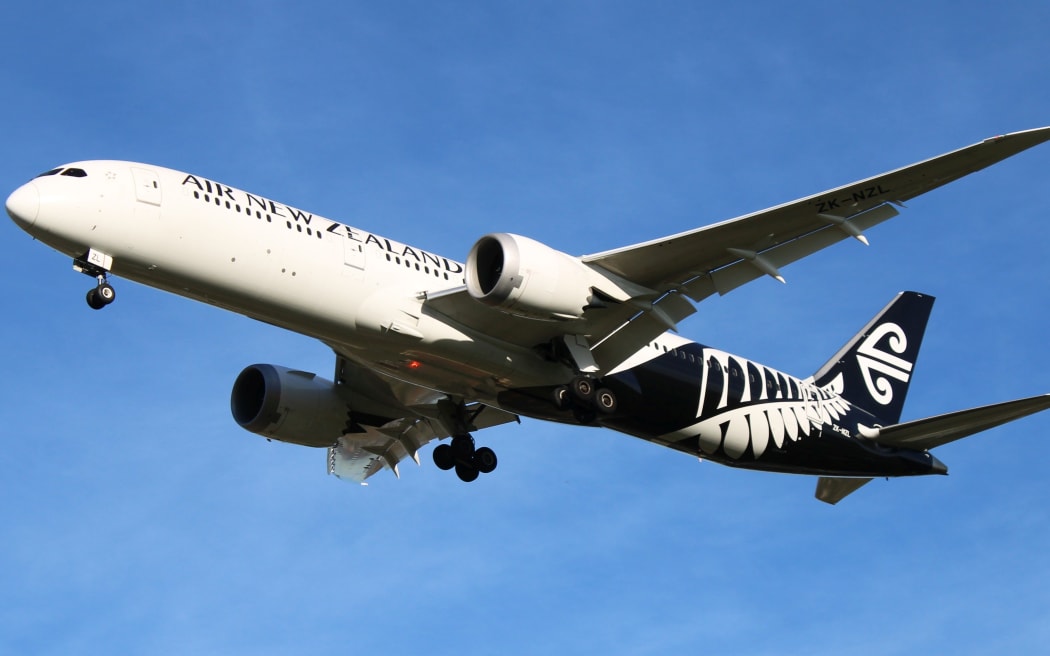
Air New Zealand will use the sustainable aviation fuel will be used on its Auckland to Los Angeles Dreamliners. Photo: Wikimedia Commons
Air New Zealand is increasing its use of sustainable jet fuel in a bid to cut carbon emissions but the expensive, difficult to source fuel will still be less than 1 percent of the airline's total fuel use.
It has signed on for 9 million litres of Neste aviation fuel made from renewable waste and produced out of a Singapore refinery.
The fuel is blended with conventional jet fuel and will be supplied out of Los Angeles.
Air New Zealand says sustainable aviation fuel is the only solution to significantly reduce emissions.
Sustainable aviation fuel or SAF is made from forestry residues, municipal waste or used cooking oils and it results in significantly lower greenhouse gas emissions than its fossil jet equivalent.
However, currently it costs two to five times more than conventional fossil jet fuel and international demand for SAF far exceeds supply. Regulations also require that it is mixed with fossil jet fuel for use.
Air New Zealand chief sustainability officer Kiri Hannifin said the airline's latest SAF purchase would not greatly decrease the airline's carbon footprint and this type of fuel would be less than 1 percent of all the fuel the airline used annually.
"It's a significant order in so far as anything we can do to reduce our impact is important but our impact's large as you know, so the savings are about 18,000 tonnes of carbon a year but you know our emissions are more like 4 million tonnes a year."
SAF was very difficult to source and represented less than 1 percent of the total global aviation fuel supply, she said.
"The technology to make it is still quite nascent and we're up against all the other big airlines who want it as well, and you know we're far away from where the market is so you know it's hard to get, it's very expensive as well but we're certainly doing our best to access it."
Air New Zealand would be using it on their Los Angeles to Auckland Dreamliners, she said.
At this stage Air New Zealand was absorbing the additional cost of using SAF on the Auckland to LA trip rather than increasing ticket prices but at some point that would likely change unless technology attains a greater price parity between the two types of fuel, she said.
"We think that by 2050 we'll have to be flying with something like 80 percent sustainable aviation fuel, so mostly sustainable aviation fuel and at the current price that's going to be more expensive."
Overseas airlines are starting to grapple with how to pass the additional cost of SAF onto consumers, she said.
There are different ways of passing these costs on including simply increasing the ticket price or calculating it according to the route being flown, she said.
"We're looking at what would work for New Zealand and at what point we'd do it - at the moment we don't have a regular supply of SAF so it's not something that's necessary for us to make a decision on now."
The Neste SAF which Air New Zealand is using is made from used cooking oil and animal waste fat, she said.
Aviation regulations require airlines to use a blend of conventional jet fuel with the sustainable jet fuel, she said.
"So at the moment we have to fly with 50 percent conventional jet fuel, fossil fuel, and then we can blend - we can put 50 percent of SAF right on top."
There have been demonstration flights that used 100 percent SAF but that was without passengers or cargo, she said.
Hopefully in time the regulations will change and the ratio will improve to allow Air New Zealand to be able to fly with more SAF, she said.
It was important to understand SAF, she said.
"Because we don't pay, none of us pay for the externalities of our flying in so far as the impact on the climate or on CO2 emissions so I think it's part of the you know training our muscle, our mind muscle to understand the true cost of flying ... it's something that we've definitely got on our road map to better deliver decarbonise our business and to price it fairly, fairly and transparently."
